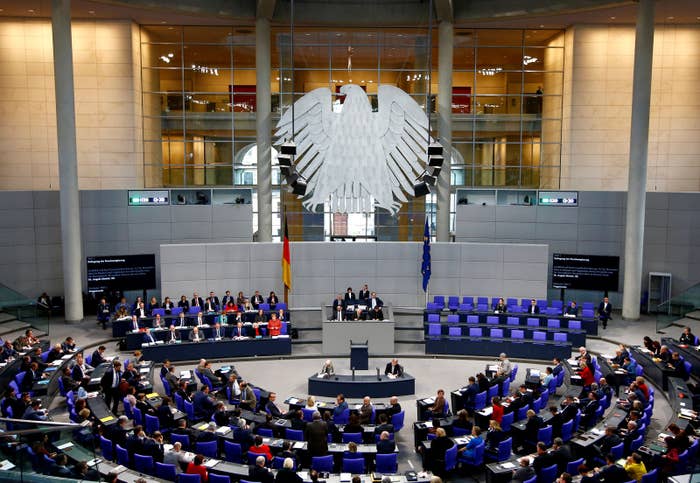
Someone has doxed hundreds of German politicians across each of Germany's political parties — but spared the far-right Alternative for Germany party.
“This is a serious attack on democracy in our country,” the leader of the Left Party, Dietmar Bartsch, said in a statement.
The release follows several elections in which the far-right Alternative for Germany party has made dramatic gains with a kind of anti-immigrant rhetoric long considered politically toxic in Germany. In 2017, it became the first far-right party since the Nazis to win seats in the national legislature. It now is Germany's third largest party, leading the opposition to the government of Chancellor Angela Merkel.
“It has now become known that personal data and documents from hundreds of politicians and public figures have been published on the internet,” Martina Fietz, vice spokesperson for the German federal government, said in a press conference Friday morning. “Politicians and elected representatives of all levels, both the European Parliament, the state parliament, and local elected representatives are affected."
The information, viewed by BuzzFeed News, is hosted on a simple text file that includes German politicians' cellphone numbers and contains links to financial information, ID cards, and purported scans of physical letters and documents. The scattered nature of the combined leaks — they don’t appear to come from any single database, and some of the material appears to be several years old — indicates it’s likely collected from multiple hacks.
“An initial analysis indicated that data has been obtained through the misuse of credentials for cloud services, email accounts, or social networks,” Germany’s Ministry of the Interior said in a statement. “Nothing indicates that systems of the Bundestag or of the Federal Government have been compromised.”
The leak links to additionally purported hacked information for eight of the nine parties represented in the Bundestag, Germany’s lower house of Parliament. The Alternative for Germany Party isn’t listed.
There’s little indication who’s behind the operation. Unlike most hacktivist operations, there’s no screed introducing the text file saying who’s claiming responsibility or why. It was first shared Thursday evening by a German-speaking Twitter account, @__0rbit, which has existed for several years. In December, it began posting smaller leaks of hacked information that didn’t get much attention at the time. Twitter has since suspended the account.
What is clear, though, is that someone went to significant length to pepper the internet with copies of this information before the @_0rbit began tweeting it. While most of the information is shared as a compressed text file, which makes it harder to search for — and therefore much harder automatically take down — the link to that file has been posted dozens of times to a number of different sites.
“Somebody spent a lot of time preparing this leak, but we don’t know why and we don’t who. A strange case,” said Thomas Rid, a Johns Hopkins political scientist writing a book about government disinformation campaigns.
The German government is working to see who's behind the leak.
“There is a lot of effort being made to find the people behind the publication and stop access to the data as quickly as possible,” the Ministry of the Interior spokesperson said.
Additional reporting by Marcus Engert and Pascale Mueller.
CORRECTION
Dietmar Bartsch's quote came from a statement. An earlier version of this post said it came from an interview.
